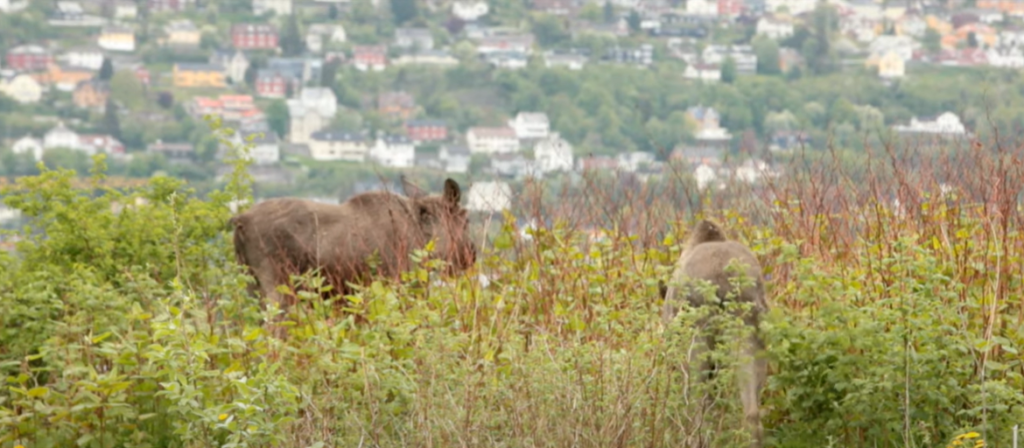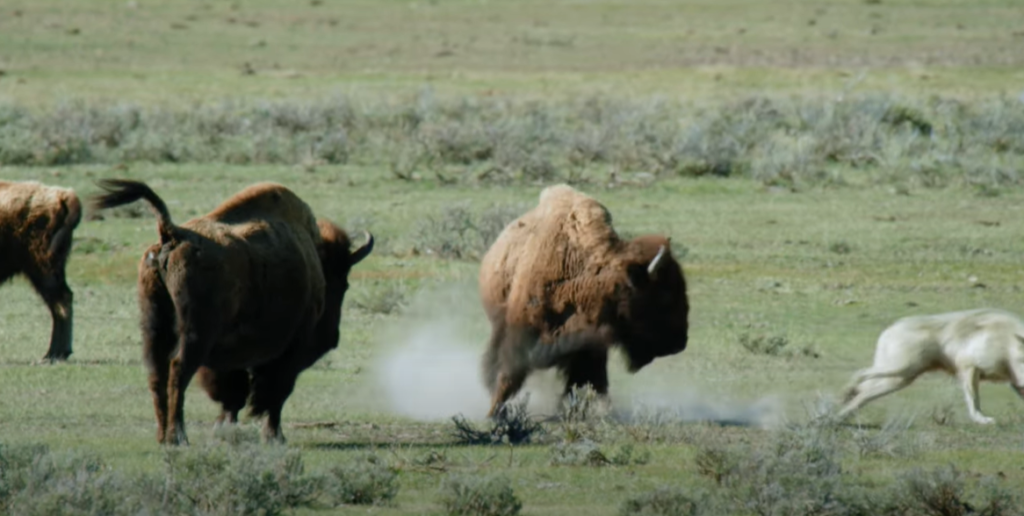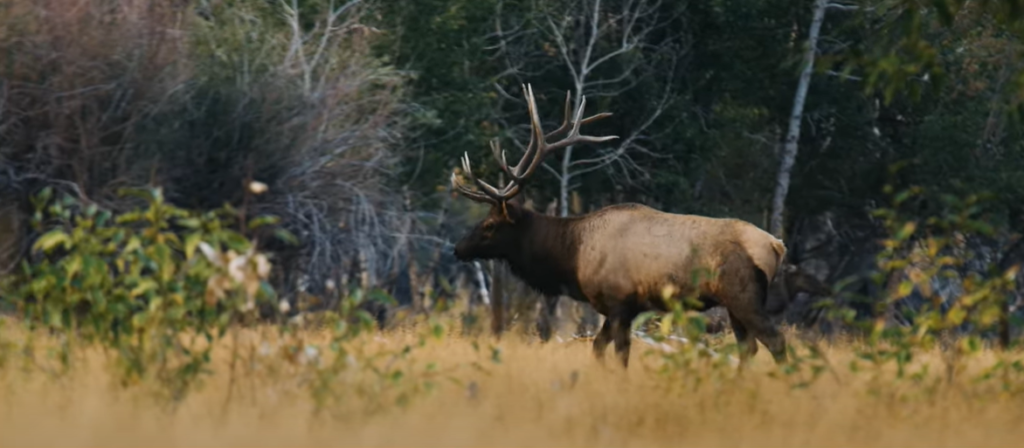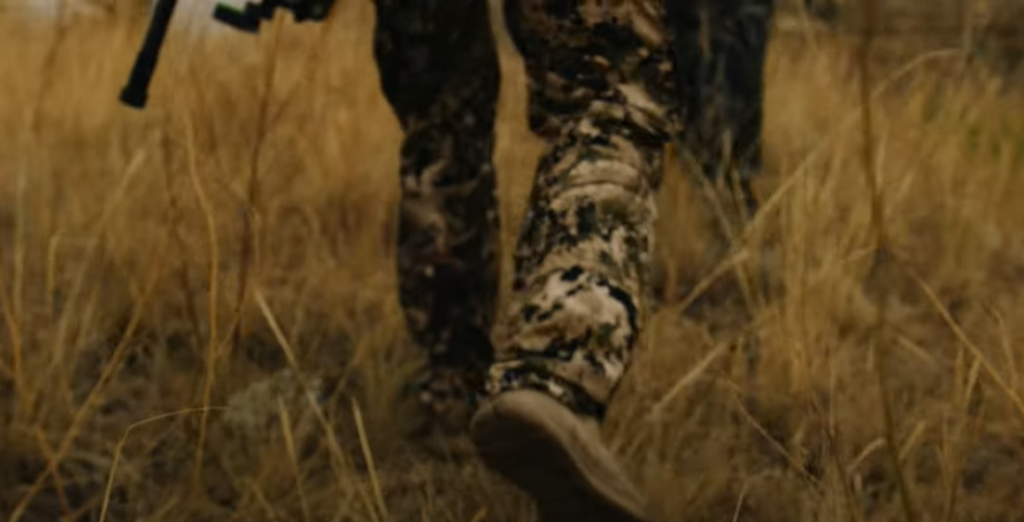Hunting is often seen as a controversial activity, but there are many benefits to hunting that make it an important part of conservation and wildlife management. Hunting can help manage animal populations, provide food for people in need, and bring communities together. It also offers a unique way to connect with nature and spend time outdoors with friends or family. By understanding the positive aspects of hunting, we can appreciate why this activity remains popular today.
Table of Contents
Reasons Why Hunting is Good for the Environment
Let’s take a look at how hunting is good for the environment.
Hunting Helps to Control Animal Populations
One of the primary benefits of hunting is its ability to help control animal populations. By removing a certain number of animals from an area, hunters can reduce competition for food and resources, allowing other species in the ecosystem to thrive. Hunting also helps prevent overpopulation, which can cause disease and starvation.
Hunting Helps to Control Invasive Species
Hunting is an important tool for controlling invasive species. Invasive species are animals, insects, or plants that have been introduced to a new environment where they do not belong, often causing problems with native ecosystems. By hunting these species and reducing their populations, hunters can help prevent them from becoming too much of a problem in their new environments.
Hunting also helps to keep populations of native species in check by providing competition for food and habitat. Hunting not only benefits the environment, but can also provide a great deal of enjoyment to hunters who enjoy the challenge and reward associated with bagging a trophy animal.
Hunting Benefits All Wildlife
Hunting is one of the most effective methods for controlling wildlife populations and preserving habitats. When hunters take game, they help reduce competition for resources like food and water, which can lead to healthier populations of animals. Hunting also helps keep predators in check, so that their prey species don’t become overpopulated or starve out other species. In addition, hunting provides an important source of funding for conservation efforts. Money from hunting licenses and fees is used to fund research that helps protect species, maintain habitats, and improve management strategies. Hunting also funds habitat improvement projects that benefit all wildlife. Finally, hunting can help preserve local cultures and traditions by providing a connection between humans and the natural world. By allowing people to hunt, they can maintain a connection to the land and their heritage.

Hunting Supports Conservation Efforts
Hunting plays an important role in biodiversity conservation, allowing populations of certain animals that might otherwise overpopulate to be kept at reasonable levels. This is especially true in environments where humans and wild animals come into contact with each other, as hunting helps to reduce competition for resources between the two species. In these cases, hunting can actually help to preserve the natural balance of the ecosystem by controlling populations of certain animal species.
In addition to preserving wildlife populations, hunting also helps to support conservation efforts in other ways. For instance, money from hunting permits and fees can be used to fund habitat restoration projects and research into sustainable harvesting methods. This allows for human activities such as logging or farming, which can harm wildlife populations if managed improperly, to be conducted responsibly. By supporting conservation efforts, hunting helps ensure that the environment and its inhabitants remain healthy for generations to come.
Hunting Contributes Greatly to the Economy
Hunting is a major industry. Hunters contribute to the economy in many ways, from purchasing hunting licenses and equipment, to spending money on food and lodging when they travel for their hunts. In some states, taxes collected from hunting are used to fund conservation efforts and other programs to protect wildlife habitats. Furthermore, the revenue generated from hunters helps create and maintain jobs, providing a welcome boost to local economies. [1]
Hunting is Natural and Humane
Hunting is a natural part of the food chain. For thousands of years, humans have relied on hunting for sustenance. It is the humane way to ensure that animals are maintained at healthy population levels and are not overpopulated in an area. Hunting allows for careful control over which animals survive and reproduce, thus preserving genetic diversity and enabling stronger, healthier ecosystems. Hunting also helps to prevent the spread of diseases among wild animal populations. This is especially beneficial for endangered species, as it helps prevent the spread of deadly diseases that can decimate a species’ population in a short amount of time.

Hunting Fosters a Respect for Nature
Hunting encourages a respect for nature, as it requires an intimate understanding of the way animals behave and their habitats in order to be successful. Hunters often become conservationists, interested in preserving natural habitats and protecting wildlife populations from over-harvesting or destruction of ecosystems. Studies have shown that hunters are some of the most effective stewards of natural resources, and they are often the most vocal opponents of those who would use natural resources irresponsibly.
Hunting can also help to maintain balanced ecosystems by controlling animal populations that might otherwise grow out of control and cause disruption or harm to the ecosystem. In addition, hunting provides an opportunity for appreciation of the beauty and wonder of nature without having to travel far from home.
Hunting is Part of Our Rich Heritage
Hunting has been a part of human culture since the beginning of time. It is embedded in our history and traditions as a way to provide sustenance and forge relationships with other members of our community. Hunting is more than just an activity – it’s a cultural heritage that connects us to our ancestors and teaches us important values, such as respect for nature, resourcefulness and self-reliance. [2]
Cons of Hunting
Despite the many benefits associated with hunting, there are some potential downsides to consider as well.
Hunting can also be expensive, with the cost of a license and other gear and supplies adding up quickly. Even if these items are purchased second-hand, they don’t come cheap. Additionally, hunting can take away from time spent with family and friends as well as leisure activities that may be more enjoyable for some people than spending hours in the woods.
Finally, hunting can create ethical issues for some people as it involves killing animals for sport. While hunters insist that there is a purpose to their actions and that hunting helps maintain animal populations by keeping them in check, not everyone agrees with this viewpoint and believes that hunting is cruel and should be avoided.
Ultimately, hunting should be a personal decision that is taken after considering all of the potential pros and cons. Everyone must decide for themselves whether or not they are comfortable with killing animals for sport and if the potential benefits outweigh any potential risks or costs. [3]

Why Is Hunting Bad for the Environment?
Hunting can have a profound and negative impact on the environment. One of the most significant issues caused by hunting is overhunting, which occurs when an animal population is reduced beyond its ability to sustain itself. Overhunting can lead to species extinction, significantly reduce biodiversity, and disrupt ecosystems.
Hunting also has other environmental impacts such as habitat destruction, pollution and disruption of natural animal behavior. For example, when predators are over hunted, they may no longer serve their role as a population regulator and the prey species can become overly abundant which threatens the balance of the entire ecosystem. In addition, hunting often requires the use of firearms or other weapons that can cause noise pollution and habitat destruction. Finally, hunting can lead to a disruption of the natural migration patterns of many animals. All these issues can have long-term and unpredictable consequences for our environment. [4]
FAQ
Why do we love hunting?
There are many reasons why hunting is such a beloved activity. For starters, it’s an incredibly fun and challenging sport that requires a lot of skill and patience. Additionally, hunters often become more attuned to their environment as they learn how best to track game, spot wildlife signs, and select the most appropriate gear for their outings.
Furthermore, hunting is a great way to connect with the outdoors, enjoy some fresh air and exercise—all while helping to regulate wildlife populations.
Finally, for many hunters, it’s about the adventure of pursuing game in unknown territory and bonding with friends or family members who share their passion for the outdoors.
Is it important to hunt?
Yes, hunting can be an important part of an ecological balance that serves to protect the environment. It is a necessary process that aids in controlling overpopulation and disease, maintaining wildlife habitat, and preserving genetic diversity of species. Hunting also provides economic benefits to local communities by generating income through the sale of licenses and other related outdoor products, as well as providing the opportunity for people to have a direct connection with nature. By understanding the natural cycle of life, hunters know that they must take only what they need and work to conserve resources as much as possible.

Why is hunting the best hobby?
Hunting is a great way to get outside and enjoy nature in a unique way. Not only is it a skillful sport, but hunting also provides food for the hunter and their family. In addition, hunting can be an excellent form of conservation. Hunters promote sustainable populations of wildlife species by regulating population size and keeping animal numbers in balance with their habitat. Hunting brings people together, as it encourages cooperation between family, friends and communities. It also provides a way of life and sense of pride for many families who have been hunting for generations. For those who are looking to improve their skill set, hunting is an ever-evolving sport that can challenge and engage participants. By practicing shooting, scouting and other skills related to hunting, individuals can continuously improve their knowledge base. Finally, hunting is incredibly therapeutic. Many hunters find that spending time outdoors provides them with an escape from the hustle and bustle of everyday life, allowing them to unwind and relax while connecting with nature.
Is hunting good for humans?
Hunting is an activity that has been around since the dawn of humanity. It can be done for sustenance, sport, recreation, or even as a way of controlling animal populations. Hunting has been and remains an important part of many cultures around the world, and it’s clear that there are numerous benefits to humans from this activity. However, there are also ethical considerations that need to be taken into account when talking about the morality of hunting.
The benefits of hunting can range from providing food, keeping animal populations in check, and even boosting local economies through tourism. Hunting is a great source of lean protein, and it’s often healthier than store-bought meats. Hunting also helps reduce animal overpopulation, and can even help protect endangered species. As far as economics go, hunting can be a great source of income for rural areas that are otherwise economically disadvantaged. Hunting can also bring in tourism money to nearby towns and cities, which can have huge impacts on local businesses and communities.
Does hunting make people happy?
The answer is yes! Hunting can bring a great deal of joy to people, both in the moment of the hunt and afterwards. There are many reasons why hunting makes people happy, including the physical challenge of it, the feeling of accomplishment after successfully completing a hunt, and even the bonding experience it can create with friends or family members who join in the hunt.
Also, hunting allows people to connect with nature and appreciate the beauty of the outdoors. Finally, many hunters find tremendous satisfaction in harvesting their own food, knowing they are getting a natural, healthy source of protein that tastes great too! So if you’re looking for something new to try or an activity that will bring you joy – don’t forget to give hunting a try. It just might be the perfect thing to make you happy!

What happens if people don’t hunt?
If people don’t hunt, there are a number of consequences for both animals and humans. Without hunting, animal populations can become overpopulated and out of balance with available resources in the environment, leading to overcrowding, starvation, malnutrition and behavioral problems. This can also lead to increased competition between species, resulting in higher rates of disease transmission and predator-prey conflicts. Unregulated hunting also puts species at risk of extinction as overhunting can deplete natural resources faster than they can be replenished. Humans, too, suffer when hunting is not managed properly. Without proper regulations in place to control the number of hunters and their actions, humans are at risk of becoming overharvested. This can lead to a decrease in game animals and the loss of an important food source for some communities. Proper management of hunting can ensure that both people and animals benefit from the activity in a sustainable way.
Is hunting healthier than farming?
Yes, hunting is healthier than farming in many ways. Hunting provides you with fresh, organic meat that comes from free-range animals that are not fed hormones or antibiotics. This means that you can be sure your food is clean and safe to eat. When you hunt wild game, it has a high protein content due to the variety of diets they feed on. This protein is much easier to digest than the processed food found in commercial farming operations.
Another benefit of hunting is that it helps to maintain a healthy balance between predator and prey populations. This can help ensure that game animals have enough resources to survive and thrive, which in turn positively impacts the local ecosystem. Hunting also encourages conservation and helps to protect wild areas from being developed.
Finally, hunting also helps to provide funds for wildlife management and habitat restoration through licenses, tags, and taxes. All of these benefits make hunting a healthier alternative to farming when it comes to obtaining food.
Does hunting help or hurt the environment?
Hunting can actually help the environment in many ways. Hunting helps to keep animal populations at a healthy level, preventing overpopulation and its associated problems such as habitat destruction, disease transmission, and competition for resources like food and water. Hunting also provides an important source of income for certain communities who rely on the sale of harvested animals or related tourism for their livelihood.
Hunting can also act as a form of nature conservation, in that hunters are often required to be knowledgeable about the species they hunt and the habitat they inhabit, allowing them to actively help protect and preserve those habitats. Finally, hunting can provide an important source of food for people who have limited access to other sources of nutrition. Thus, when managed responsibly, hunting can be beneficial to the environment and its biodiversity.
What is so fun about hunting?
Hunting is an exciting activity, full of surprises and thrills. It gives hunters the opportunity to be out in nature and test their skills against other animals. Hunting also provides a unique physical challenge as it involves walking through uneven terrain, tracking footprints and scents, learning animal behavior patterns, using different weapons or techniques, and so on.
It’s also an excellent way to build self-confidence, as success in the hunt requires understanding and mastering of skills. But there is much more to hunting than just a physical or mental challenge. From an ecological standpoint, hunting helps keep animal populations in balance, ensuring that certain species do not become too numerous and cause damage to their habitats. Hunting also provides food for those who consume it, and can even be a source of income for many rural communities.
Finally, hunting is an important cultural tradition in many parts of the world, especially among Indigenous peoples who have used hunting as a way to sustain themselves for generations. As such, it provides a connection to our ancestors and helps us understand our place in the natural world.

What can hunting teach you?
Hunting can teach you a lot of important skills, such as patience, discipline, problem-solving and planning. It requires the hunter to be strategic in their approach to hunting for prey and requires the hunter to consider the environment around them before taking any action. Hunting also helps develop hand eye coordination and teaches hunters how to read animal behavior, which can be invaluable in other areas of life. On a more personal level, hunting can offer an excellent opportunity for connection with nature. By being out in the wilderness and observing its beauty, it can be a deeply spiritual experience that brings about a sense of peace and relaxation.
Hunting also offers time for reflection and allows you to observe and appreciate the beauty of nature in a way that is not possible in any other settings. In addition to these benefits, hunting also has environmental advantages. By controlling animal populations, it helps to maintain a balance in the natural ecosystem and prevents overpopulation, which can lead to habitat destruction and dangerous disease outbreaks. Hunting also provides an important source of income for many rural communities, which can benefit their local economies. All in all, hunting is a great activity that can teach you valuable skills and bring you closer to nature.
Useful Video: 5 Reasons Why Hunting is Good
Conclusion
In conclusion, hunting can be a great way to connect with nature, be outdoors and experience wildlife. It can also provide food that is fresher and healthier than store-bought meat. Hunting is an important aspect of conservation management, helping to sustain animal populations and ecosystems. It’s also a great form of exercise and recreational activity. Finally, hunting can provide an experience of immense satisfaction and pride in the successful completion of a challenging task. As long as it is done safely and responsibly, hunting can be an incredibly beneficial activity for both animals and people.
References:
- https://fosburit.com/lifestyle/why-hunting-is-good-for-the-environment/
- https://outsider.com/outdoors/camping-meals/deer-backstrap-recipe-over-the-campfire-fresh-venison-from-field-to-frying-pan/
- https://www.lazyckranch.com/blog/why-hunting-is-good
- https://study.com/academy/lesson/positive-negative-effects-of-hunting.html






Leave a Reply